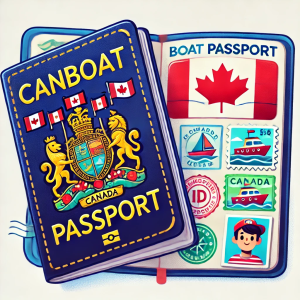CanBoat Courses and Streams of Study
The four columns below showcase our four streams of study:
Boating Essentials, Cruising, Supplemental Learning, and Mini-Courses.
* Membership in CanBoat is not required to take any of our courses. *
We hold most of our courses from September through late April with the following exceptions:
Register for the Pleasure Craft Operator Card – available 24/7/365 and the final exam is on-line.
Register 365 for the Maritime Radio ROC(M) – available 24/7/60 for sixty days with final written exam on-line and oral test done over a live web conference session.
The on-line Mini-Courses are available 24/7/365.
Whether you just need the boater’s driver’s license to use your water ski or fishing boat, or you dream of voyaging through continental coastal areas, or across the seven seas, we have the classroom or on-line resources to teach you. Be it power or sail, you will learn much on how to operate and navigate a boat yourself.
CanBoat education is classroom-based or on-line only. We do not offer any “on-water” training.
For questions on your journey from dreamer to ‘living the dream’, please reach out to the CanBoat Calgary Education Director Peter LaGrandeur.
CanBoat Passport
Completion of each CanBoat course earns you a “proof of competency” passport sticker to show charter companies, skippers, and insurance co’s.
And bragging rights.
Purchase your very own CanBoat Passport directly through our national Shop.
Boating Essentials
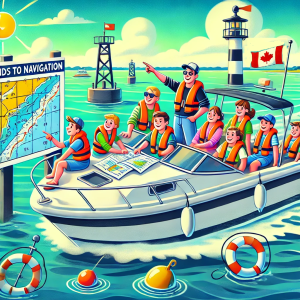
Pleasure Craft Operator Card 'PCOC'
This self-study course will earn you Canada’s ‘Boater’s Driver’s License’.
Available 24/7/365. Start anytime! Usually completed in one evening.
Basic Navigation
Suggested Prerequisite: PCOC
Chart reading, aids to navigation, more …
Formerly called ‘Boating 2‘.
Boat Handling
Suggested Prerequisite: Basic Navigation
Docking, anchoring, propellers, wind, more. Formerly called ‘Boating 3‘.
Maritime Radio ROC(M)
This self-study full course earns you your certification in Maritime VHF Radio. It is a legal requirement to have the federal Radio Operator Certificate (Marine) ‘ROC(M)’ to use a VHF marine band radio.
Available 24/7/365. Start anytime! Usually completed in three evenings or over a weekend.
Challenge Option: Do you have access to the most recent study materials for the Maritime Radio VHF course? Such as from a family member or friend who just finished the course? If you are confident that you know the material and can do the calling scenarios, you can opt to challenge the ROC(M) certification. Note that there are no study materials or support available to those doing the challenge.
Please note that there are topics in the ROC(Maritime) that are unique to this certification. Persons with the ROC(A), ROC(L), GOC, amateur radio licenses, etc., will not have covered enough subject matter to automatically be qualified for the ROC(M).
Click HERE to register to challenge the Radio Operator Certificate (Maritime).
Practical Weather for Boaters
Weather systems, clouds, forecasts, local observations.
Monitor the national course calendar for the next on-line class in Practical Weather for Boaters.
Cruising
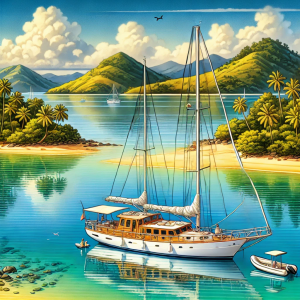
Seamanship and Coastal Navigation
Suggested Prerequisite: Boat Handling
Formerly called ‘Seamanship / Boating 4 / Near Shore Marine Navigation – Level 1’.
Includes heavy weather sailing, emergencies, chart use, advanced marlinspike, electronic navigation.
Near Shore Marine Navigation Level 2
Suggested Prerequisite: Near Shore Marine Navigation – Level 1
Formerly called ‘Advanced Piloting / Boating 5’.
Includes extended cruise planning and chart use.
Extended Cruising
Suggested Prerequisites: Near Shore Marine Navigation – Level 2, Maritime Radio, Amateur Radio, Practical Weather for Boaters
Previously called World Sailing, this course shows you how to bring it all together so you can live the dream. The ins and outs of how to live aboard your boat for months or years at a time.
Monitor the national course calendar for the next on-line class in Extended Cruising.
There is also the opportunity to do self study for this course by directly ordering the text book from the CanBoat Shop and doing the exercises at the end of each chapter. If you desire to write the final exam, and receive the official certificate of completion, please contact the Calgary Education Director.
Off Shore Marine Navigation Level 1
Suggested Prerequisite: Near Shore Marine Navigation – Level 2
Formerly called ‘Junior Navigator’ / Boating 6.
Introduction to traditional methods of trans ocean celestial navigation, using sextant & specialty charts, focusing on day time solar observations. Some use of electronic navigation gear is included.
Monitor the national course calendar for the next on-line class in Off Shore Marine Navigation Level 1.
Off Shore Marine Navigation Level 2
Suggested Prerequisite: Off Shore Marine Navigation – Level 1
Formerly called ‘Senior Navigator’ / Boating 7.
Trans-ocean crossing and passage making procedures using traditional night time celestial observations and sextant. Electronic nav instrument use is included.
Monitor the national course calendar for the next on-line class in Off Shore Marine Navigation Level 2.
Amateur Radio
Suggested Prerequisite: Maritime Radio
Amateur Radio certifications are what is needed for radio comms beyond line of sight and beyond the horizon. Essential to any mariner voyaging to remote coastal regions and ocean passages.
Supplemental Learning
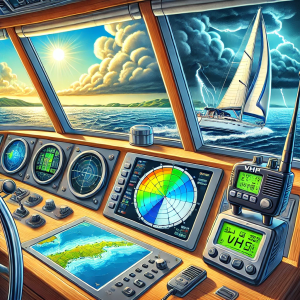
Electronic Navigation
Suggested Prerequisite: Basic Navigation
An overview and dive into the many electronic navigation systems available to us on our pleasure craft. Included systems include chart plotters, side scan depth sounders, radar, weatherfax, DSC VHF marine radio, satellite internet, HF amateur radio, WinLink.
Radar for Boaters
Take the mystery out of interpreting the radar system on your boat.
Boat and Engine Maintenance
An in depth course where student learning includes hull repair, rigging, engine & drive train, propeller maintenance, specialty tools, best practices, and pro-tips to enable you to trouble shoot and repair your own vessel.
Marine Electrical Maintenance
Learn electrical principles, specialty gauges & tools, wire sizing, some electrical code familiarization, best practices, and pro-tips to enable you to trouble shoot, repair, and upgrade the 12/24 VDC systems on your own vessel.
Monitor the national course calendar for the next on-line class in Marine Electrical Maintenance.
There is also the opportunity to do self study for this course by directly ordering the text book from the CanBoat Shop and doing the exercises at the end of each chapter. If you desire to write the final exam, and receive the official certificate of completion, please contact the Calgary Education Director.
Sailing
Suggested Prerequisite: Pleasure Craft Operator Card (PCOC)
A classroom-based course which covers the practical and theoretical basics of sailing and sailing seamanship.
Monitor the national course calendar for the next on-line class of ‘Sailing’.
Mini-Courses
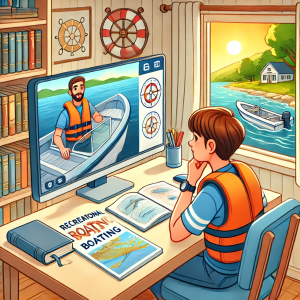
Aids to Navigation
This self-study mini-course explains how to recognize buoys, markers, and beacons. Get to know their shapes, colours, and chart symbols — and how they guide your journey on the water.
Available 24/7/365. Start anytime! Usually completed in 2 – 4 hours.
Anchor With Assurance
In this essential self-study mini-course, you’ll learn how to anchor a boat safely, choose the right anchor, calculate your rode, and apply proven anchoring techniques for different conditions.
Available 24/7/365. Start anytime! Usually completed in 2 – 4 hours.
Avoiding Collisions
This must-take self-study mini-course teaches how to avoid boat collisions, understand right of way, and apply Canadian boating regulations with confidence. Based on the International Regulations for Preventing Collisions at Sea (with Canadian modifications).
Available 24/7/365. Start anytime! Usually completed in 2 – 4 hours.
Boating In Tidal Waters
This self-study mini-course offers a solid introduction to tidal navigation, helping you avoid costly, stressful mistakes. Gain core knowledge needed to boat safely in tidal zones.
Available 24/7/365. Start anytime! Usually completed in 2 – 4 hours.
Celestial Navigation In a Nutshell
A self-study mini-course introduction to trans-ocean passage making using a traditional sextant and related data for location finding using objects in the daytime and night sky.
Available 24/7/365. Start anytime! Usually completed in 2 – 4 hours.
Docking With Confidence
This self-study mini-course teaches how to dock and undock a boat safely, even in wind, current, or tight spaces. Learn proven docking tips and step-by-step procedures to approach and leave the dock, with techniques for handling wind and current from different directions.
Available 24/7/365. Start anytime! Usually completed in 2 – 4 hours.
How to Use a GPS
This self-study mini-course takes a look at the various GPS constellations in use, and how modern boating navigation systems integrate this technology for efficient voyaging.
Available 24/7/365. Start anytime! Usually completed in 2 – 4 hours.
Knots and Lines
This self-study mini-course covers must-know boating knots every mariner should master — when to use them, how to tie them, different types of rope (cordage) used on board, how to choose the right one, and how to handle lines safely to protect your boat and crew.
Available 24/7/365. Start anytime! Usually completed in 2 – 4 hours.
Tropical Weather for Boaters
This self-study mini-course introduces basic weather theory with an emphasis on weather characteristics when boating in tropical regions of the earth.
Available 24/7/365. Start anytime! Usually completed in 2 – 4 hours.
For a list of agencies which offer on-water training, please click here.
![]()


